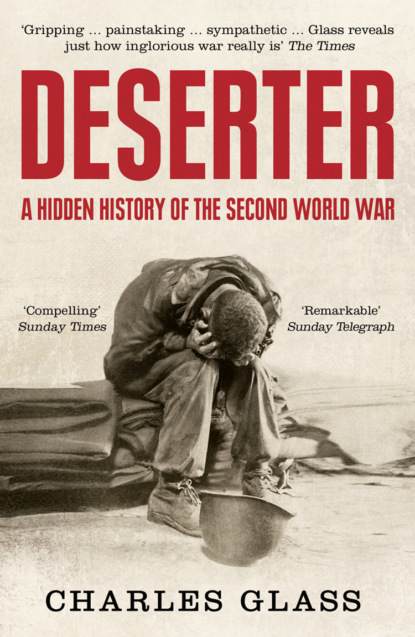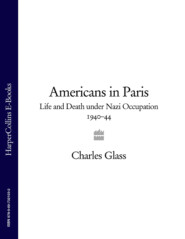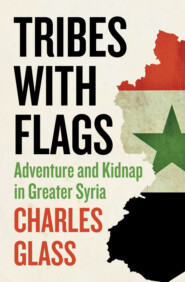По всем вопросам обращайтесь на: info@litportal.ru
(©) 2003-2024.
✖
Deserter: The Last Untold Story of the Second World War
Настройки чтения
Размер шрифта
Высота строк
Поля
All right, he thought, they were right, the commandant and the rest of them. He was a coward. If he hadn’t been a coward he would have knocked Henderson’s dirty teeth down his throat. He hadn’t done it because he was afraid. He was afraid of the consequences: the body-belt, that wide leather waist-band with a steel cuff on either side to pin the prisoner’s hands down so that he was a man without arms, defenceless against the time they crept, silent at night on plimsolled feet, to burst into the cell and use him as a punch-bag and a football … He was afraid.
Bain was closer to despair than at any other time since his arrest. But it struck him that Henderson’s eyes had betrayed fear. The staff sergeant had left the cell quickly, much faster than usual. If Henderson taunted him again, ‘He’d smash the bastard.’ Henderson did not taunt him again.
The treatment meted out to him earned a mention in his poem ‘Compulsory Mourning’:
You’ll be confined in darkness and we’ll not
Allow you more than two hours’ light each day.
You’ll be on bread and water. There you’ll stay
For three full days and nights and we shall find,
I think, that this will concentrate the mind …
Bain returned to the communal cell after his three days’ isolation, secure in the knowledge that he had survived PD One and could do it again.
No news reached the inmates, apart from what little seeped through in censored letters from their families. Bain did not know that his friend Hughie Black and the rest of the 5/7th Gordon Highlanders were fighting that summer in Sicily. After Bain left them at Wadi Akarit, the Gordons had advanced north up the Tunisian coast. Tunis fell on 12 May 1943, ending the North African campaign. The 51st Highland Infantry Division disembarked for Malta on 5 July, spent three days near Valletta and landed unopposed on the Sicilian beaches on 10 July. The British and Americans achieved victory in Sicily on 17 August. But, as in North Africa, they failed to prevent the bulk of the Axis forces from escaping to fight again.
Chalky White, who seemed privy to every rumour circulating in the barracks, told Bain that a second front was about to open in Europe. The army had begun recruiting men for the invasion even from military prisons. Soldiers willing to fight again would have their sentences remitted for the duration. Bain had doubts.
The steady cruelty of the regime persisted. ‘More days passed, each an ugly replica of the one that had gone before,’ Bain wrote. Bain’s friend from the Durham Light Infantry, Bill Farrell, collapsed during drill. The sergeants took him away, and Chalky White told Bain later, ‘Bill’s kicked the bucket, the bastards killed him. I’ll get one of them fuckers for this, I swear to God.’ White and the other SUSs, however, were powerless.
Bain, whose hatred of the guards was growing ‘like a malignant flower,’ wrote,
It was outrageous that the mean, stupid and sadistic staff, not one of whom had ever been within range of any missile more dangerous than a flying cork, should be able to abase, mock and abuse men who were, in many cases, their physical, moral and intellectual superiors or at least had been tested in circumstances of pain and terror beyond the imaginings of their present captors and whose failures surely merited something other than this kind of punishment.
At the daily ten-minute Communication Parades, the men could not speak about Farrell’s death within earshot of the staff sergeants. Instead, they rehearsed the formulaic exchanges of a suburban cocktail party. ‘Where do you come from?’ Bain asked a man facing him.
‘The Midlands. Near Coventry. What’s left of it.’
The man said he had read that American privates in Britain were paid more than British officers. ‘No wonder they’re fucking all our women.’
Bain asked, ‘How’d you get anything to read? Who gave it to you?’
The man from Coventry explained that the regulations, ‘the bit that Babbage never reads out’, allowed any prisoner with more than fifty-six days inside to request a book or magazine. All Bain had to do was ask one of the ‘screws’. Bain considered which staff sergeant to approach, settling on Brown. Brown, the short sergeant who had advised him how best to use his blankets in solitary, ‘was probably the least overtly hostile and sadistic.’ Bain found a chance two days later, when Brown took charge of the cell. ‘Excuse me, Staff,’ he said. Brown, startled that an inmate would ‘speak before spoken to’, said, ‘Well?’
‘I wondered if I could get something to read,’ Bain dared, with the innocence of Oliver Twist asking, ‘More.’
‘And what put that into your head?’ Bain answered that the regulations allowed him books and magazines. Brown demanded to know who had told him that. Bain protected his source, saying only that it was someone he did not know on Communication Parade. Peeved, Brown left to find something for Bain to read. He returned a few minutes later and threw a magazine in Bain’s direction. Bain looked at it in the near-darkness of the cell, suddenly seeing that the letters were in Arabic. Brown grinned. ‘Satisfied?’
Вы ознакомились с фрагментом книги.
Приобретайте полный текст книги у нашего партнера:
Приобретайте полный текст книги у нашего партнера:








